Monday marked my 47th work anniversary! On 15 August 1975, I started work as a research officer in the Econometric Forecasting Unit at the London Business School under the tutelage of Professor Jim Ball and Terry (now Lord) Burns. I guess I’m wondering how long a working life should last. As the institutional rigidity of a State Retirement Age is swept away, it brings the freedom to curtail or to prolong the working life. I think there are strong arguments in favour of retaining a connection to the world of work for as long as one’s health and strength permits. Prominent among these arguments is inflation uncertainty: never underestimate the haste with which a fixed nominal income can be reduced to rubble.
Somewhere, that I have not yet been able to trace, I read that the gold standard of a working life was “50 hours a week, 50 weeks a year, 50 years a life”. I imagine that this idea was conceived over half a century ago, when it would only have been possible to cram in fifty years of work by starting at age 14 or 15, since life expectancy was much lower. This ‘gold standard’ amounts to a working life of 125,000 hours, and I have no doubt that quite a few people achieve this today. I stand in awe of professional friends and acquaintances, well into their seventies and some in their eighties, who are still working a significant number of hours each day. Whereas a standard holiday entitlement is now 4 or 5 weeks a year in the UK, in the 1950s it was little more than 2 weeks (figure 1). Average weekly hours of work for men have collapsed from around 48 in 1952 to about 37 today. A 2018 study found that the average British worker (including those working part-time) will contribute 34 hours and 26 minutes of work per week, totalling 1,791 hours a year and 84,171 hours over their career. Figure 2 estimates how the average working life has shrunk since 1931.
In 1930, John Maynard Keynes published a short essay entitled “Economic possibilities for our grandchildren”. It is notorious for its prediction that, a hundred years on, people would (need to) work for only 15 hours a week. In his own words, “I would predict that the standard of life in progressive countries a hundred years hence will be between 4 and 8 times as high as it is today”. At that point, “everybody will need to do some work if he is to be contented … a 15-hour week may put off the problem for a great while. For 3 hours a day is quite enough to satisfy the old Adam in most of us!” While Keynes correctly predicted the future of economic growth and improving living standards, he was way off in anticipating the future allocation of time between work and leisure.
The secular tendency towards shorter working weeks and longer holidays (documented in figures 3, 4 and 5) infers that work is a harmful activity, to be undertaken as little as necessary. Proponents point to the adverse health consequences of the 996 working hour system adopted in many Chinese companies: 9am to 9pm, 6 days a week, making a 72-hour working week. However, a US survey of more than 50 studies of the physical impact of excessively long work weeks found that the negatives – higher injury rates, increased mortality, more frequent illness, unhealthy eating, smoking and alcohol habits – kicked in only beyond a 50-hour working week. As an interim observation, I think 47 is an excellent number*. To have worked at least 47 hours a week (on average) for 47 weeks of the year for 47 years makes a tally of 103,823 hours and counting. Quantity isn’t everything, but without the daily discipline of a work routine, work of a consistent quality is well-nigh impossible.
*47 is a prime number, a safe prime, a supersingular prime, an Eisenstein prime, a Lucas number, a Carol number and a Keith number. It is the atomic number for silver and the atomic weight of titanium.
Figure 1:
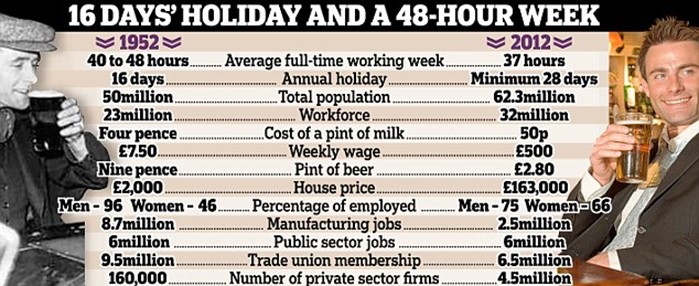
Source: Chartered Institute of Personnel and Development, 2012
Figure 2:
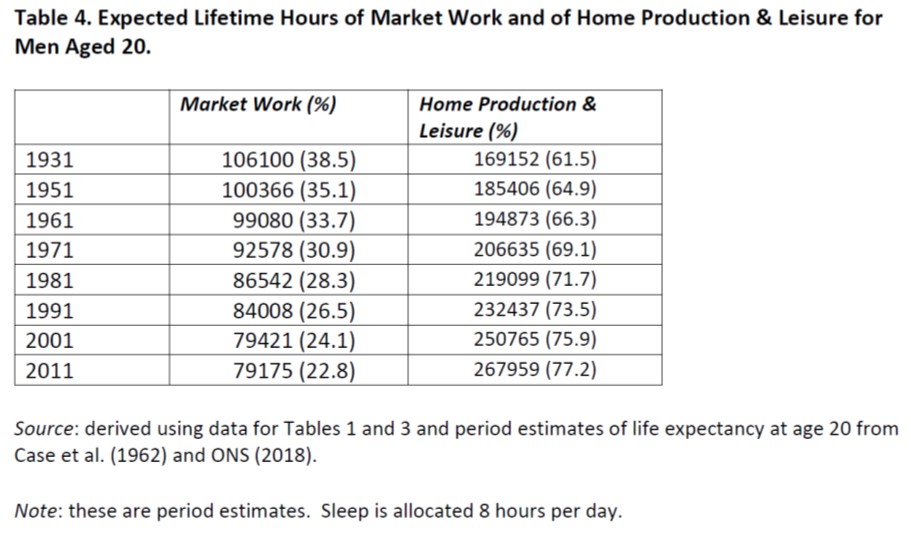
Source: Nicholas Crafts, The 15-hour week: Keynes’s prediction revisited, CAGE working paper 566, May 2022
Figure 3:
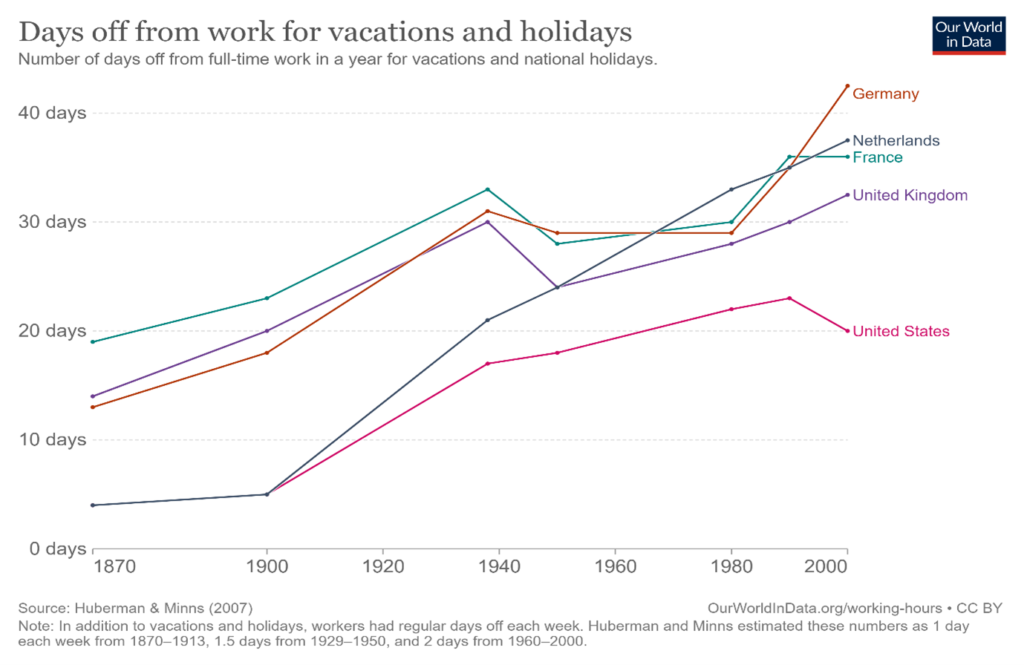
Figure 4:
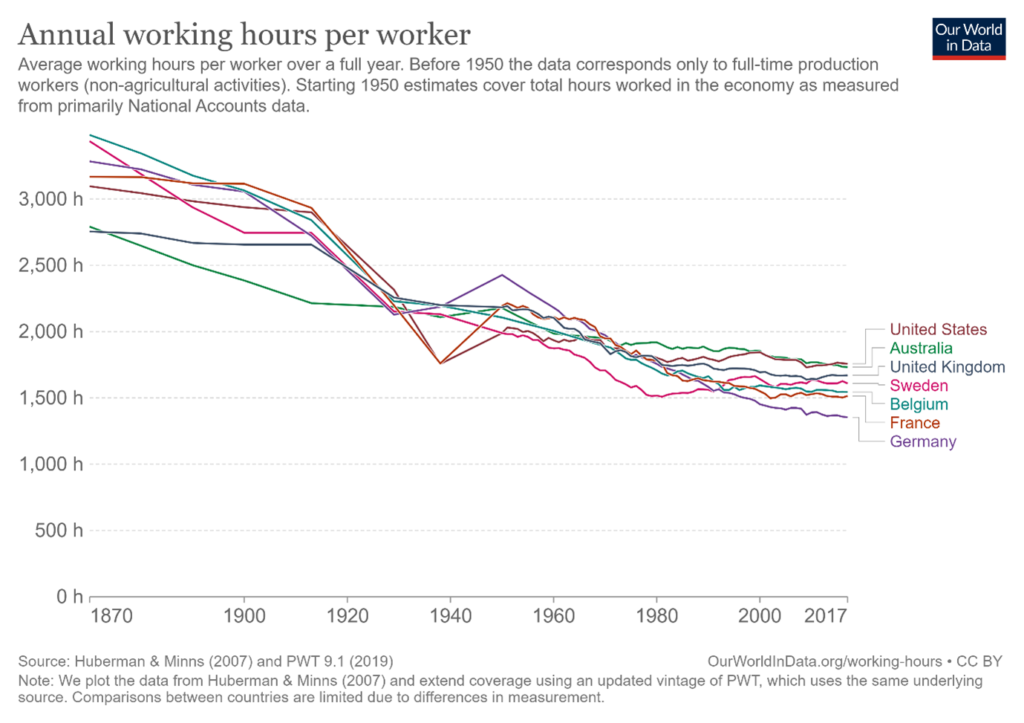
Figure 5:
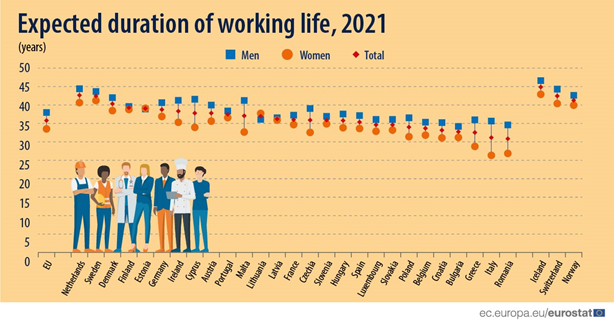


Congratulations Peter for your 47th work anniversary. Nick
Congratulations, Peter.
An Impressive and rewarding career.
Best wishes,
Robin